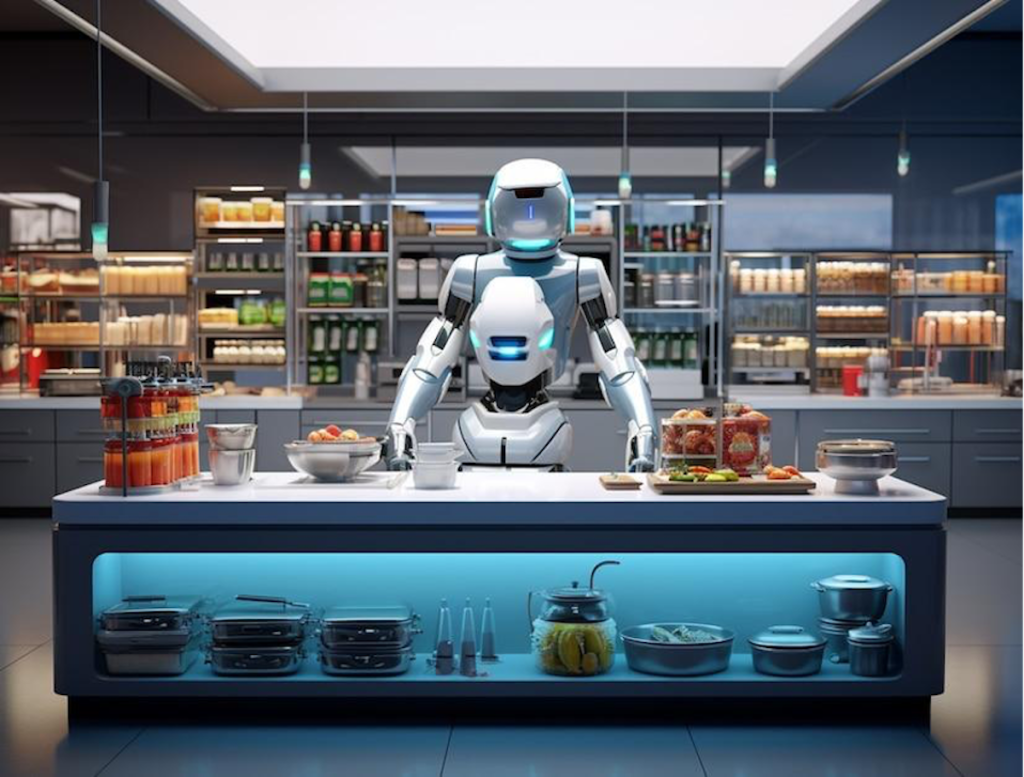The integration of AI technology into the realm of culinary arts has given rise to the concept of robot chefs, marking a pivotal shift in the way we perceive the future of cooking. The emergence of robot cooks capable of executing complex culinary tasks with precision and efficiency has sparked a wave of excitement and debate, prompting us to ponder whether this innovative leap is indeed the future of gastronomy.
Revolutionizing Culinary Operations
The advent of AI robot chefs represents a significant breakthrough in addressing key challenges in the culinary industry, ranging from labor shortages to food waste reduction. By seamlessly complementing or even taking over the roles traditionally performed by human cooks, robot chefs have the potential to solve the perennial issue of understaffing in restaurants, fast-food establishments, and high-volume kitchens, thus streamlining operations and enhancing the overall customer experience .
Moreover, the remarkable ability of AI robot cooks to reduce food waste and costs through precise ingredient dispensing and environment monitoring underscores their pivotal role in fostering sustainability and efficiency in culinary practices. By harnessing advanced AI technology, these robot chefs are equipped to mitigate the risk of contamination, thereby bolstering food safety standards and elevating customer satisfaction and loyalty .
The Promise of AI-Enhanced Culinary Artistry
One of the groundbreaking developments in the realm of AI robot chefs is the creation of a fully robotic kitchen by Moley Robotics, revolutionizing the way meals are prepared and served. With its sophisticated design and autonomous capabilities, this ceiling-mounted device, equipped with two arms, can deftly navigate the kitchen, adjusting temperatures, utilizing the sink, and executing a myriad of culinary tasks with remarkable precision and dexterity .
The fusion of AI and culinary mastery is further exemplified by the potential of AI robot chefs to learn and adapt to new recipes through the aid of onboard sensors and advanced AI technology. By monitoring a multitude of parameters and tapping into their sensory capabilities, these robot cooks can autonomously execute tasks, optimize recipes, and adapt to diverse dietary preferences and lifestyles, thereby redefining the boundaries of culinary innovation.
Overthinking the Role of AI Robot Chefs in Culinary Innovation
In contemplating the profound advancements in AI robot chefs, it is essential to acknowledge the irreplaceable role of human intervention in certain culinary tasks. Despite the impressive progress, overthinking the development of AI robot chefs reveals that tasks such as ingredient preparation and the subjective art of taste assessment remain inherently human-centric.
AI robot chefs undeniably excel in quantitative tasks, yet the overthinking of cooking, intricately woven with the nuances of taste preferences, emphasizes the indispensability of human cooks in the culinary landscape. The overthinking of this integration raises compelling questions about the future of culinary creativity and human collaboration in everyday households and commercial kitchens.
Overthinking the potential impact of AI robot chefs underscores the need to strike a harmonious balance between the precision of AI-enhanced culinary processes and the irreplaceable human touch that defines the artistry of cooking. As these technologies continue to advance, overthinking their role becomes imperative in ensuring a seamless coexistence of AI innovation and human creativity in the culinary domain.
Despite the remarkable strides made in the development of AI robot chefs, it is crucial to recognize that there are certain culinary tasks, such as the preparation of ingredients and the subjective art of taste assessment, where human intervention remains indispensable. While AI robot chefs excel in quantitative tasks, the inherently qualitative nature of cooking, intertwined with the nuances of taste preferences, underscores the irreplaceable role of human cooks in the culinary landscape.
Furthermore, the potential integration of AI robot chefs into everyday households and commercial kitchens raises thought-provoking questions about the future of culinary creativity and human collaboration. As these technologies evolve, it becomes imperative to strike a harmonious balance between the precision of AI-enhanced culinary processes and the irreplaceable human touch that defines the artistry of cooking.
Exploring the Potential of AI-Enhanced Culinary Delights
The realm of gastronomy is witnessing a profound transformation driven by the fusion of AI technology and culinary craftsmanship. As the culinary world continues to embrace the advancements of AI robot chefs, it is evident that these innovative technologies hold the potential to redefine the future of cooking, shaping the way meals are prepared, and served in homes, restaurants, and beyond.
In conclusion, the integration of AI technology into the domain of culinary arts through the advent of robot chefs signifies a remarkable leap towards the future of gastronomy. While AI robot chefs demonstrate unparalleled precision and efficiency in executing culinary tasks, they stand as partners to human cooks, collectively reshaping the landscape of culinary innovation. As the culinary world continues to evolve, the harmonious collaboration between AI-enhanced culinary artistry and human creativity holds the promise of unlocking new culinary horizons, where the art of cooking is elevated to unprecedented heights of precision and creativity, while preserving the timeless essence of human culinary mastery.




